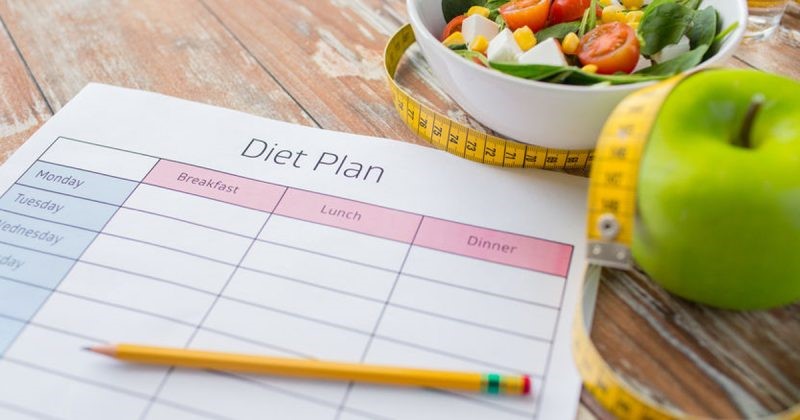When it comes to eating, many of us have developed habits. Some are good and some are not so good. Even if you have had the same eating pattern for years, it’s not too late to make improvements. Making sudden, radical changes, such as eating nothing but soups & all, can lead to short term weight loss. However, such radical changes are neither healthy nor a good idea and won’t be successful in the long run. Permanently improving your eating habits requires a thoughtful approach. It can help you improve your overall health and even help you avoid chronic diseases. It also can help you maintain a healthy weight.

Go Green
We all know that one must eat veggies. They are full of good fibre and vitamins. But the average person eats only about half the amount they should. So how can you get more in? Swap out high carbs veggies with high fibre veggies. You’ll cut calories and add major nutrition.
Plan a weekly menu
Menu planning might sound like a chore, but its benefits are far-reaching. It’s a powerful tool to enhance your nutrition, save time and money, and faster family involvement in the kitchen. It can be hard to think straight when you come home tired at the end of the day. It’s also the waste of time to figure out what to make for dinner.


Swap your deep-fried snacks with healthy ones
It is hard to resist the junk food-filled vending machine when your stomach is growling at 3 p.m. But you do not need to rely on willpower alone. The right food choices earlier in the day can set you up for success. Opt for protein. It fills you up and helps you feel satisfied longer than carbs do. Go for meals and snacks that include things like hardboiled eggs, yogurt, peanut butter, and skinless chicken.
Hydrate yourself
Staying hydrated can help you maintain energy and lose weight. Sometimes it is hard to tell the difference between hunger and thirst. Drinking more water helps your body stay hydrated so you know when you are truly hungry. How much water you need depends on many factors, including your height, weight, activity level, and where you live. A general guideline is to drink 2-3 litres of water every day, if not doing heavy exercise.


Avoid sugary drinks
Sugary sodas, juices, and sweet teas can add a lot of calories and sugar to your diet. Instead of reaching for a soda or juice with your meal, opt for plain water. You can even add a lemon, lime, mint or cucumber to your water to make it extra refreshing.
Eat whole grains
Whole grains provide you with dietary fibre, vitamins, and minerals. The fibre in whole grains also helps you feel full for a long time with fewer calories. Whole grains like brown rice, barley, oats, and rye offer more nutrients and fibre than heavily processed grains like white rice and most bagels, muffins, and white bread.


Know the difference between bad fats and good fats
Your body needs fat to function. But it’s important to know what kind of fats are actually good for you (or not). Good fats include monounsaturated & polyunsaturated fats. Bad ones include trans fats. Saturated fats lie somewhere in between.
Go easy on the salt
Salt (sodium on a nutrition label) is essential for the body. But too much can raise your blood pressure, putting you at risk for heart problems. Sodium is found in most processed and packaged foods. Cutting back on packaged foods can help to reduce your sodium intake, as well as the other bad stuff you will find in them.
